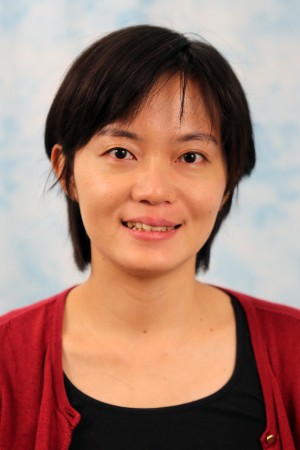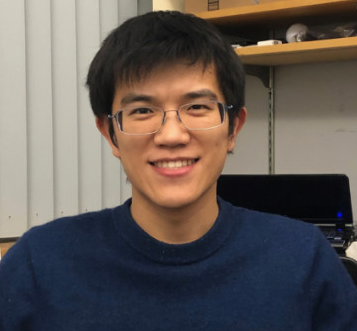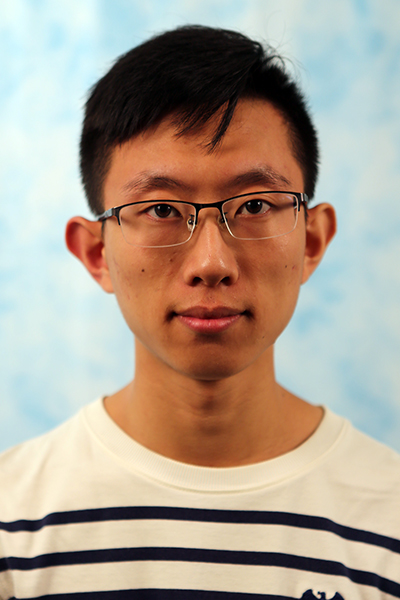PhD Thesis Defense
Carnegie Mellon University
Learning Structured World Model for Deformable Object Manipulation
Abstract: Manipulation of deformable objects challenges common assumptions in robotic manipulation, such as low-dimension state representation, known dynamics, and minimal occlusion. Deformable objects have high intrinsic state representation, complex dynamics with high degrees of freedom, and severe self-occlusion. These properties make them difficult for state estimation and planning. In this thesis, we introduce benchmarks and [...]
Carnegie Mellon University
Object Pose Estimation without Direct Supervision
Abstract: Currently, robot manipulation is a special purpose tool, restricted to isolated environments with a fixed set of objects. In order to make robot manipulation more general, robots need to be able to perceive and interact with a large number of objects in cluttered scenes. Traditionally, object pose has been used as a representation to [...]
Carnegie Mellon University
Heuristic Search Based Planning by Minimizing Anticipated Search Efforts
Abstract: We focus on relatively low dimensional robot motion planning problems, such as planning for navigation of a self-driving vehicle, unmanned aerial vehicles (UAVs), and footstep planning for humanoids. In these problems, there is a need for fast planning, potentially compromising the solution quality. Often, we want to plan fast but are also interested in [...]
Carnegie Mellon University
Accelerating Numerical Methods for Optimal Control
Abstract: Many modern control methods, such as model-predictive control, rely heavily on solving optimization problems in real time. In particular, the ability to efficiently solve optimal control problems has enabled many of the recent breakthroughs in achieving highly dynamic behaviors for complex robotic systems. The high computational requirements of these algorithms demand novel algorithms tailor-suited [...]
Carnegie Mellon University
3D Reconstruction using Differential Imaging
Abstract: 3D reconstruction has been at the core of many computer vision applications, including autonomous driving, visual inspection in manufacturing, and augmented and virtual reality (AR/VR). Because monocular 3D sensing is fundamentally ill-posed, many techniques aiming for accurate reconstruction use multiple captures to solve the inverse problem. Depending on the amount of change in these [...]
Learning with Structured Priors for Robust Robot Manipulation
Abstract: Robust and generalizable robots that can autonomously manipulate objects in semi-structured environments can bring material benefits to society. Data-driven learning approaches are crucial for enabling such systems by identifying and exploiting patterns in semi-structured environments, allowing robots to adapt to novel scenarios with minimal human supervision. However, despite significant prior work in learning for [...]
Carnegie Mellon University
Self-Supervising Occlusions For Vision
Abstract: Virtually every scene has occlusions. Even a scene with a single object exhibits self-occlusions - a camera can only view one side of an object (left or right, front or back), or part of the object is outside the field of view. More complex occlusions occur when one or more objects block part(s) of [...]
Carnegie Mellon University
Learning with Diverse Forms of Imperfect and Indirect Supervision
Abstract: Powerful Machine Learning (ML) models trained on large, annotated datasets have driven impressive advances in fields including natural language processing and computer vision. In turn, such developments have led to impactful applications of ML in areas such as healthcare, e-commerce, and predictive maintenance. However, obtaining annotated datasets at the scale required for training high [...]
Computational Interferometric Imaging
Abstract: Imaging systems typically accumulate photons that, as they travel from a light source to a camera, follow multiple different paths and interact with several scene objects. This multi-path accumulation process confounds the information that is available in captured images about the scene and makes using these images to infer properties of scene objects, such [...]
Neural Radiance Fields with LiDAR Maps
Abstract: Maps, as our prior understanding of the environment, play an essential role for many modern robotic applications. The design of maps, in fact, is a non-trivial art of balance between storage and richness. In this thesis, we explored map compression for image-to-LiDAR registration, LiDAR-to-LiDAR map registration, and image-to-SfM map registration, and finally, inspired by [...]
Carnegie Mellon University
System Identification and Control of Multiagent Systems Through Interactions
Abstract: This thesis investigates the problem of inferring the underlying dynamic model of individual agents of a multiagent system (MAS) and using these models to shape the MAS's behavior using robots extrinsic to the MAS. We investigate (a) how an observer can infer the latent task and inter-agent interaction constraints from the agents' motion and [...]
Carnegie Mellon University
Parallelized Search on Graphs with Expensive-to-Compute Edges
Abstract: Search-based planning algorithms enable robots to come up with well-reasoned long-horizon plans to achieve a given task objective. They formulate the problem as a shortest path problem on a graph embedded in the state space of the domain. Much research has been dedicated to achieving greater planning speeds to enable robots to respond quickly [...]
Carnegie Mellon University
Visual Dataset Pipeline: From Curation to Long-Tail Learning
Abstract: Computer vision models have proven to be tremendously capable of recognizing and detecting several real-world objects: cars, people, pets. These models are only possible due to a meticulous pipeline where a task and application is first conceived followed by an appropriate dataset curation that collects and labels all necessary data. Commonly, studies are focused [...]
Carnegie Mellon University
Optimization of Small Unmanned Ground Vehicle Design using Reconfigurability, Mobility, and Complexity
Abstract: Unmanned ground vehicles are being deployed in increasingly diverse and complex environments. With modern developments in sensing and planning, the field of ground vehicle mobility presents rich possibilities for mechanical innovations that may be especially relevant for unmanned systems. In particular, reconfigurability may enable vehicles to traverse a wider set of terrains with greater [...]
Carnegie Mellon University
Towards Reconstructing Non-rigidity from Single Camera
Abstract: In this talk we will discuss how to infer 3D from images captured by a single camera, without assuming the target scenes / objects being static. The non-static setting makes our problem ill-posed and challenging to solve, but is vital in practical applications where target-of-interest is non-static. To solve ill-posed problems, the current trend [...]
Large Scale Dense 3D Reconstruction via Sparse Representations
Abstract: Dense 3D scene reconstruction is in high demand today for view synthesis, navigation, and autonomous driving. A practical reconstruction system inputs multi-view scans of the target using RGB-D cameras, LiDARs, or monocular cameras, computes sensor poses, and outputs scene reconstructions. These algorithms are computationally expensive and memory-intensive due to the presence of 3D data. [...]
From Reinforcement Learning to Robot Learning: Leveraging Prior Data and Shared Evaluation
Abstract: Unlike most machine learning applications, robotics involves physical constraints that make off-the-shelf learning challenging. Difficulties in large-scale data collection and training present a major roadblock to applying today’s data-intensive algorithms. Robot learning has an additional roadblock in evaluation: every physical space is different, making results across labs inconsistent. Two common assumptions of the robot [...]
Building 4D Models of Objects and Scenes from Monocular Videos
Abstract: We explore how to infer the time-varying 3D structures of generic, deformable objects, and dynamic scenes from monocular videos. A solution to this problem is essential for virtual reality and robotics applications. However, inferring 4D structures given 2D observations is challenging due to its under-constrained nature. In a casual setup where there is neither [...]
Learning via Visual-Tactile Interaction
Abstract: Humans learn by interacting with their surroundings using all of their senses. The first of these senses to develop is touch, and it is the first way that young humans explore their environment, learn about objects, and tune their cost functions (via pain or treats). Yet, robots are often denied this highly informative and [...]
Redefining the Perception-Action Interface: Visual Action Representations for Contact-Centric Manipulation
Abstract: In robotics, understanding the link between perception and action is pivotal. Typically, perception systems process sensory data into state representations like segmentations and bounding boxes, which a planner uses to plan actions. However, this state estimation approach can fail in environments with partial observability, and in cases with challenging object properties like transparency and deformability. [...]
Multi-Human 3D Reconstruction from Monocular Videos
Abstract: We study the problem of multi-human 3D reconstruction from videos captured in the wild. Human movements are dynamic, and accurately reconstructing them in various settings is crucial for developing immersive social telepresence, assistive humanoid robots, and augmented reality systems. However, creating such a system requires addressing fundamental issues with previous works regarding the data [...]







